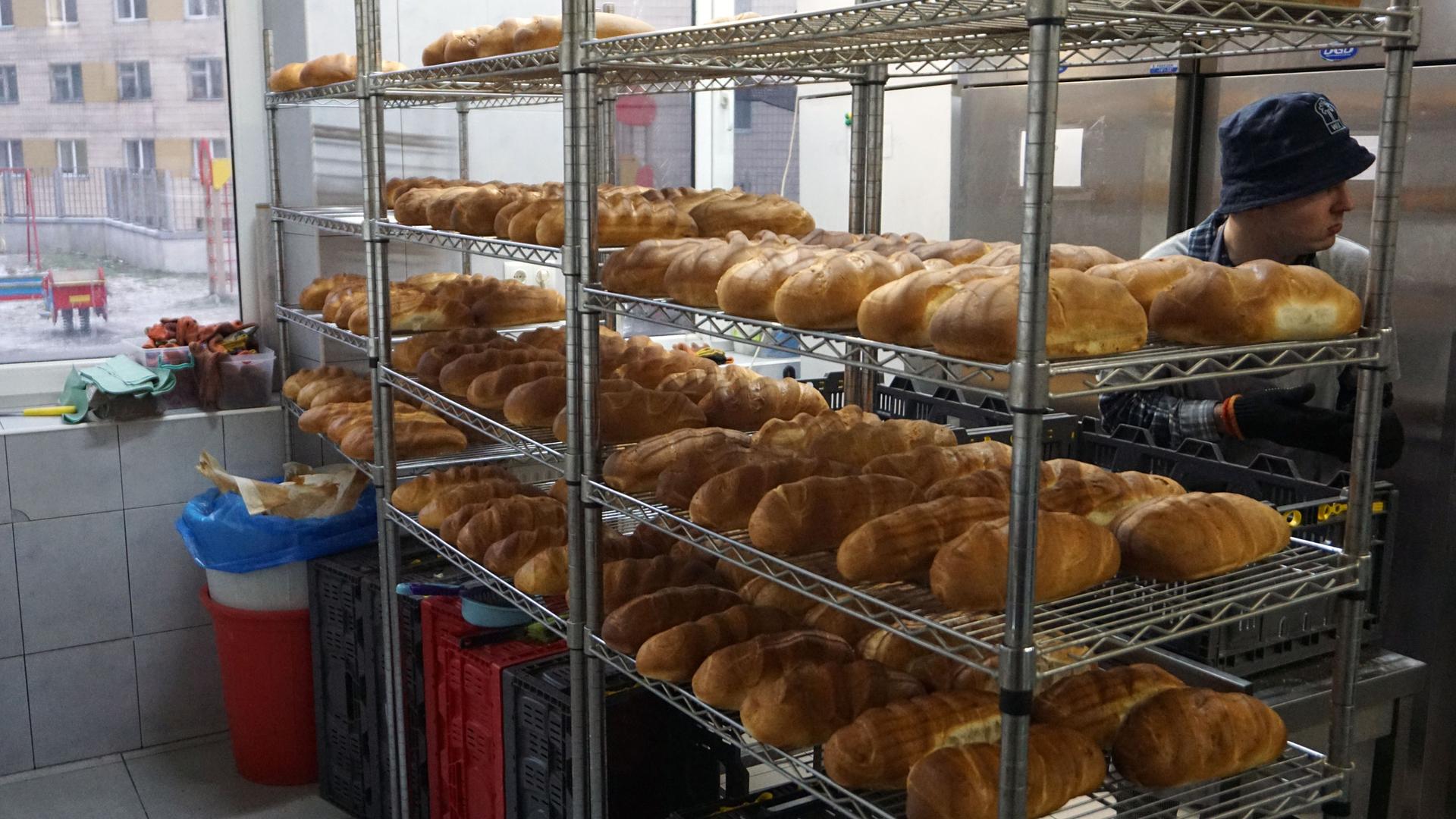Anton Nesterko’s life changed from professional dancer to volunteer when Russia launched its full-scale invasion into Ukraine on Feb. 24.
He and his dance partner used to represent Ukraine in international dance competitions, becoming one of the top 10 best dance couples in the world.
“Now, because of the war, we [changed] our priority and a little bit, like, stopped our career, but [we] do everything that is possible to finish war as fast as possible and get back on the dance floor,” he told The World.
Since the start of Russia’s invasion, Ukraine’s leaders have not been shy about asking for international help. Ukrainian President Volodmyr Zelinskiy’s United24 campaign has pulled in more than $275 million worth of assistance. That’s on top of the tens of billions in military aid that Ukraine has received from other countries.
But that’s at the government level. Ukrainians also understand the critical need for volunteer support from regular people like Nesterko.
His volunteer organization, PoParam, is based at a dance studio in Kyiv. Every day, they pack medicine, first-aid kits, warm clothing and other essentials into boxes and send them off to soldiers on the front lines.
“Eleven boxes — and everything is going to send to our best warriors in the world,” he said.
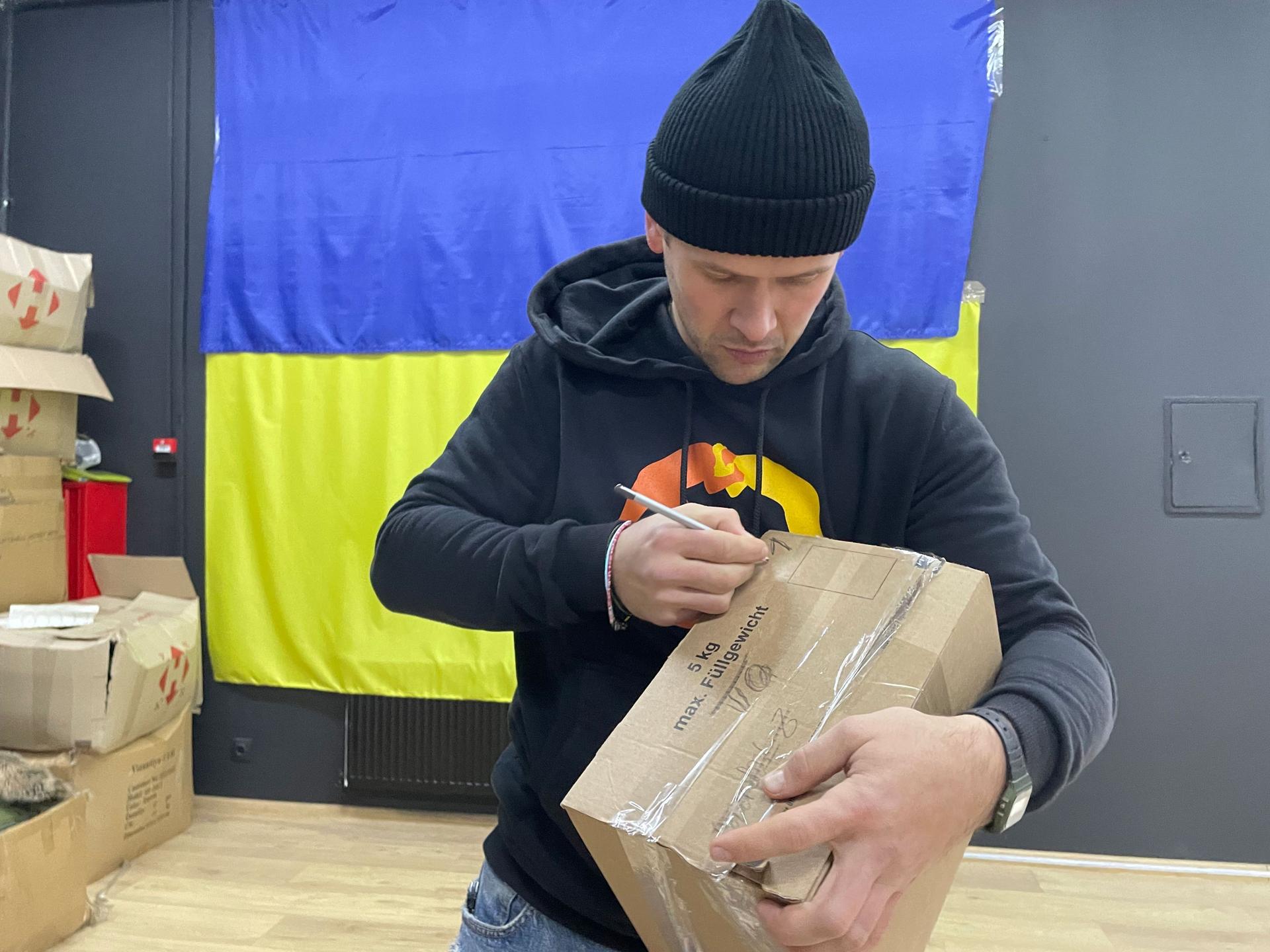
Grassroots organizations like Nesterko’s have popped up all around Kyiv.
Some are small, with just a few people, while others have grown into big organizations with hundreds of volunteers.
Serhiy Prytula has become one of the faces of Ukraine’s volunteer movement. A former TV presenter, he founded and now leads the Prytula Charity Foundation.
Spokeswoman Maria Pysarenko said it all started in a Kyiv office, where volunteers crowded together to organize donated resources for the war effort — including military vests, helmets, energy drinks and guns for people to pick up and fight on the front lines.
“People understand that, if they didn’t do this, the army of Russia would be here. Maybe some of us would be dead, tortured, in Kyiv, so people know this priority,” Pysarenko said.
The foundation has raised more than $100 million in aid, split between humanitarian and military assistance.
Melaniya Podolyak, also with the Prytula Charity Foundation, said some donors only want to donate toward humanitarian needs — not military ones.
“However, again, there’s no humanitarian aid without successful military advancement,” she said. “So, this is really what we need as citizens of Ukraine.”
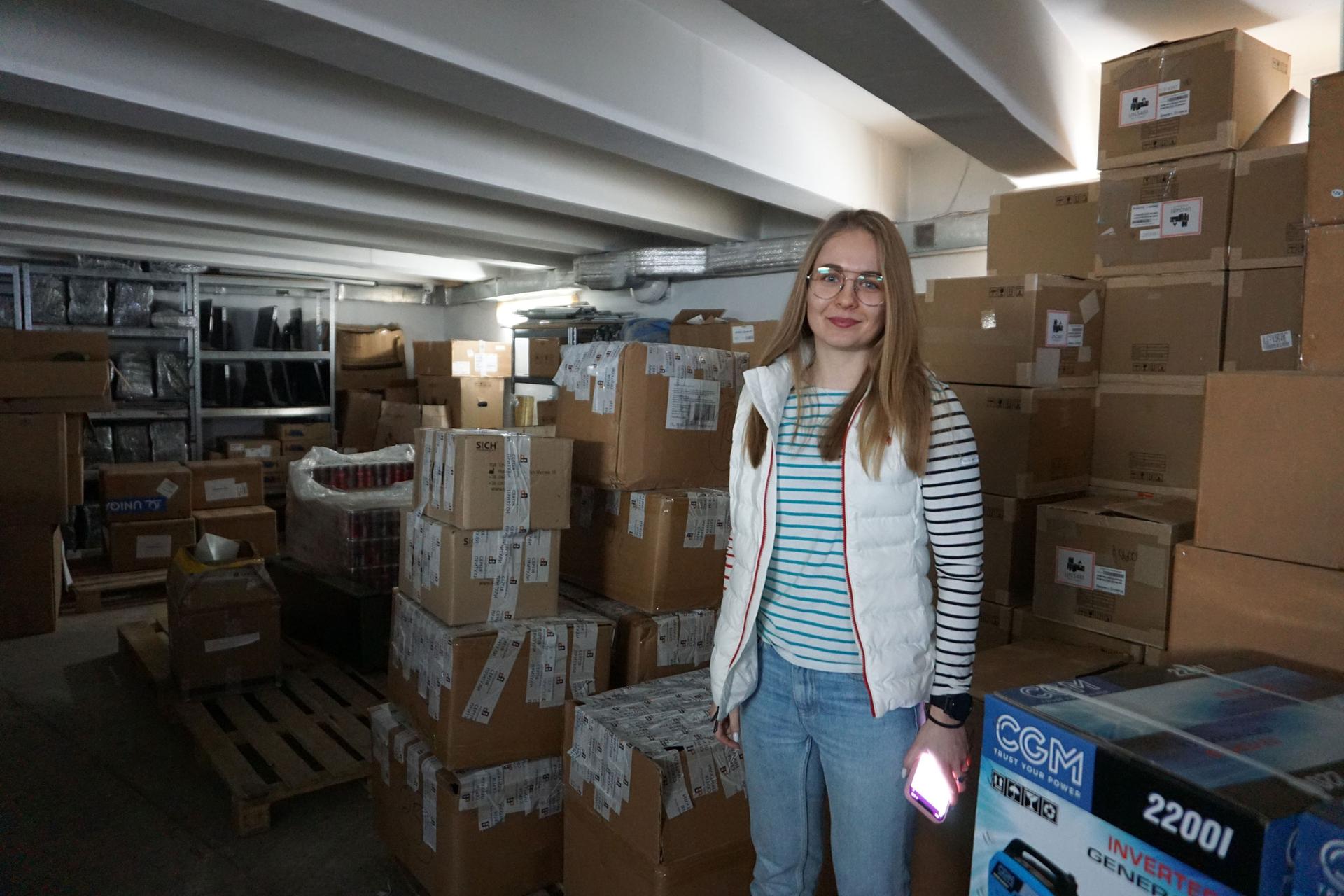
Pysarenko said that this question comes up a lot. She said the state does cover basic needs, and heavy weapons, like rocket launchers and artillery, but volunteers are needed to “fill in gaps which can’t be covered by the state” due to the scale of the invasion.
In December, Prytula and his team went to Washington to make that case to lawmakers in Congress.
“It’s hard to divide our society into civil and military during the war. It’s better to call them people who defend our state with weapons and people who bring them the bullets,” he said.
At another volunteer organization in Kyiv, called the Good Bread Bakery, the focus is more basic — providing thousands of loaves of bread for soldiers and civilians in areas near the front line.
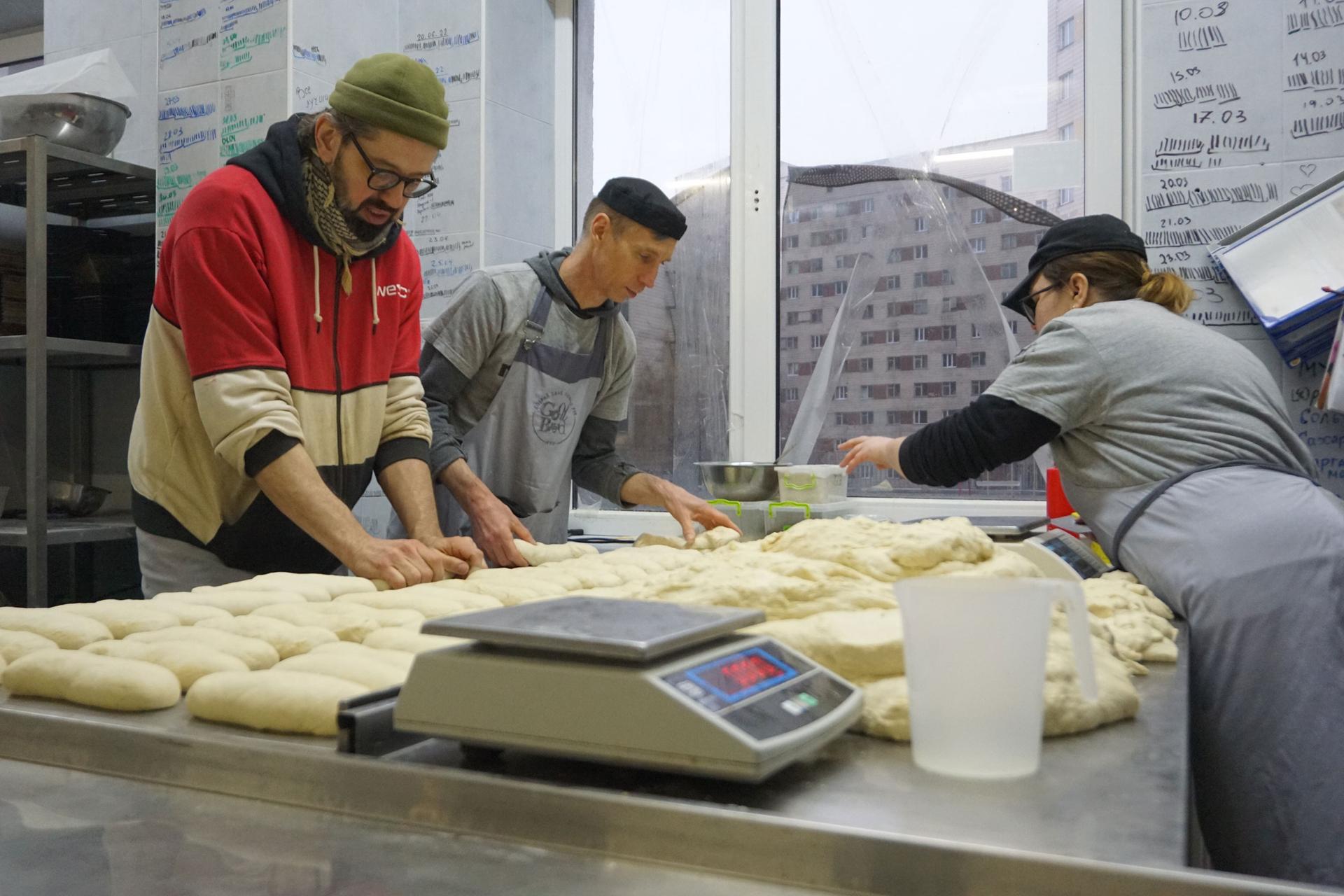
The bakery was founded five years ago to provide opportunities for people with mental disabilities. Before the war, the bakery made lots of cakes and croissants.
“After the war began, we understood that there is no sense in cakes and croissants and so on, and we decided to bake bread,” said Olena Martynenko, the bakery’s communication manager.
With two newer commercial ovens, volunteers are able to bake about 1,000 loaves a day that are then shipped to the front lines of eastern Ukraine.
Volunteer baker Kostya Mykhno worked as an actor up until recently. He said working at the bakery is fun but also hard work.
Because of the war, everyone in this country is going through hardship, Mykhno said. But volunteering is a way to channel feelings into something tangible — a sentiment shared widely in Ukraine.
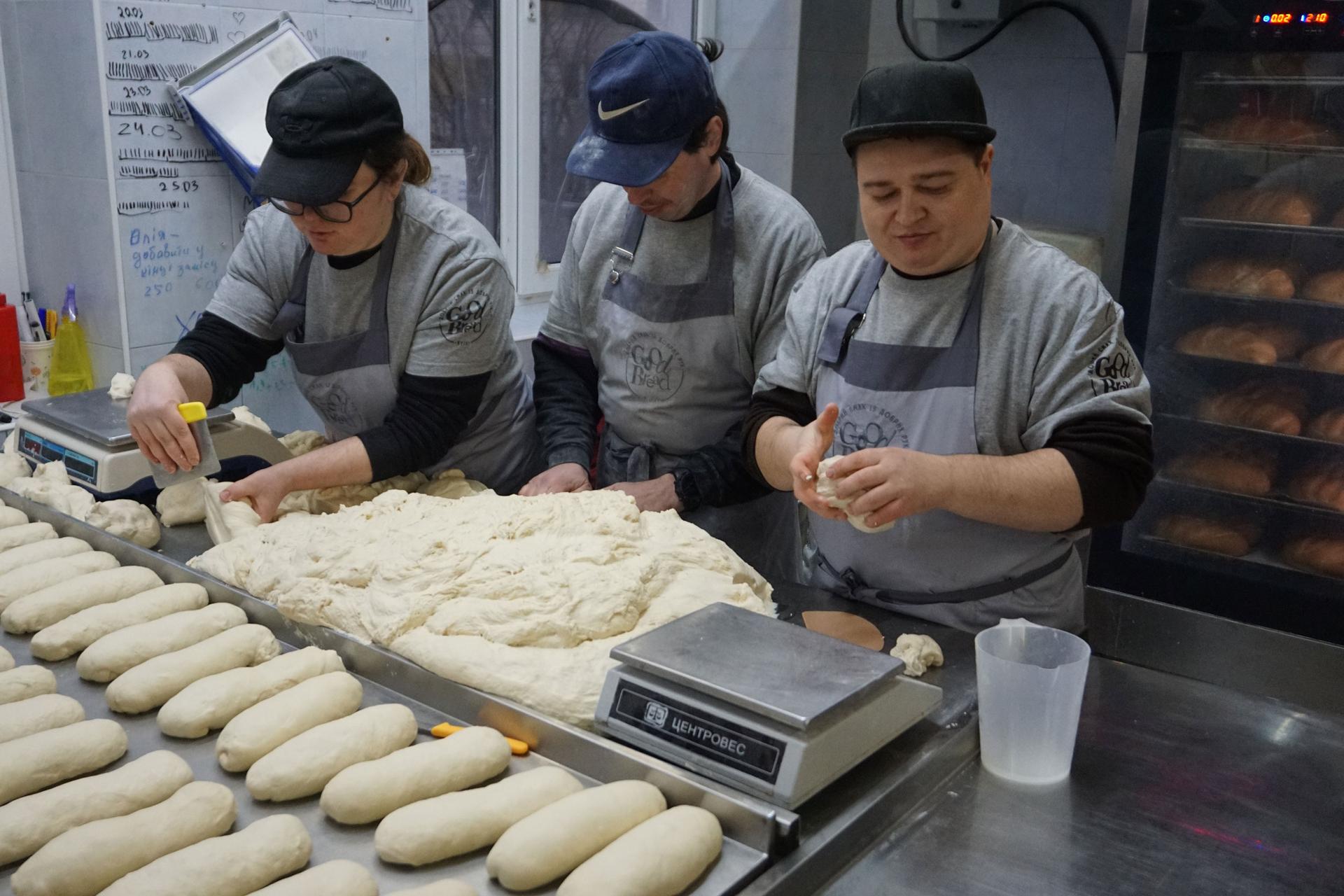
Some volunteers do experience burnout. When that happens, dancer Nesterko said he reminds everyone that the war is still ongoing in eastern Ukraine and their efforts are needed.
There’s a shared sense in Ukraine that everyone can chip in and do something to help out.
Max Tkachenko contributed to this report.
We want to hear your feedback so we can keep improving our website, theworld.org. Please fill out this quick survey and let us know your thoughts (your answers will be anonymous). Thanks for your time!
